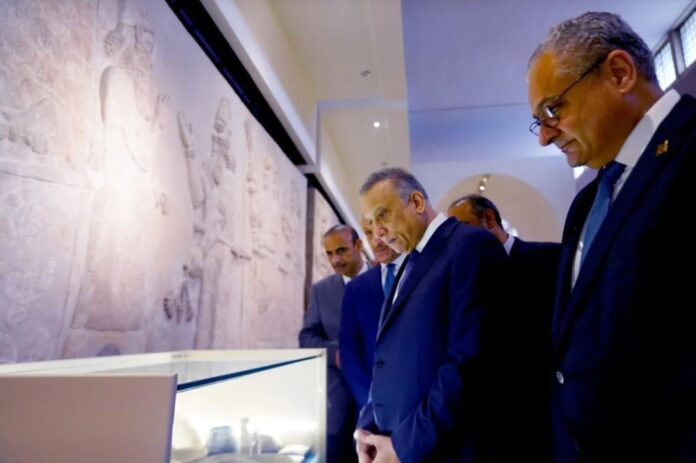
Iraq’s National Museum in Baghdad reopened to the public on Monday after being closed for three years following political unrest in the region that threatened the museum’s security.
Iraq’s prime minister Mustafa al-Kadhimi, officially inaugurated the reopening of the museum on Sunday. The newly renovated national museum had closed its doors in 2019 amid escalating anti-government protests in Baghdad. Home to artifacts dating from ancient Mesopotamian, Abbasid, and Persian civilizations, the institution was originally founded in the 1920s as a part of a cultural initiative led by a British archeologist.
The office of the prime minister said in a statement on Twitter that the reopening follows “a long period of maintenance and rehabilitation.” Laith Majid Hussein, the head of Iraq’s antiquities authority, told the Agence France-Presse that the pandemic contributed to the museum’s years-long hiatus.
In the newly reopened museum, 9th-century Islamic antiquities from the Nimrud palace of Assurnasirpal II figure alongside artifacts dating back to the Neo-Assyrian empire from multiple millennia ago.
The museum had previously suffered years of security threats amid conflict in the region. In 2003, its collection was looted after the U.S. military’s invasion that ousted Saddam Hussein, plunging the region into instability and leaving behind a booming illicit antiquities trade. Around 15,000 items were estimated to have been taken from the museum, with nearly half still unreturned to the region. Twelve years after being shuttered amid the 2003 offensive, the state-backed museum reopened in 2015.
It was not only the Baghdad museum to be affected in the invasion’s aftermath. U.S. forces and members of the Islamic State (ISIS) occupied archeological sites and other museums in the region as armed conflict led to further damage and the trafficking of antiquities. In July of last year, the country’s prime minister finally ordered the museum to be reopened to scholars.
























